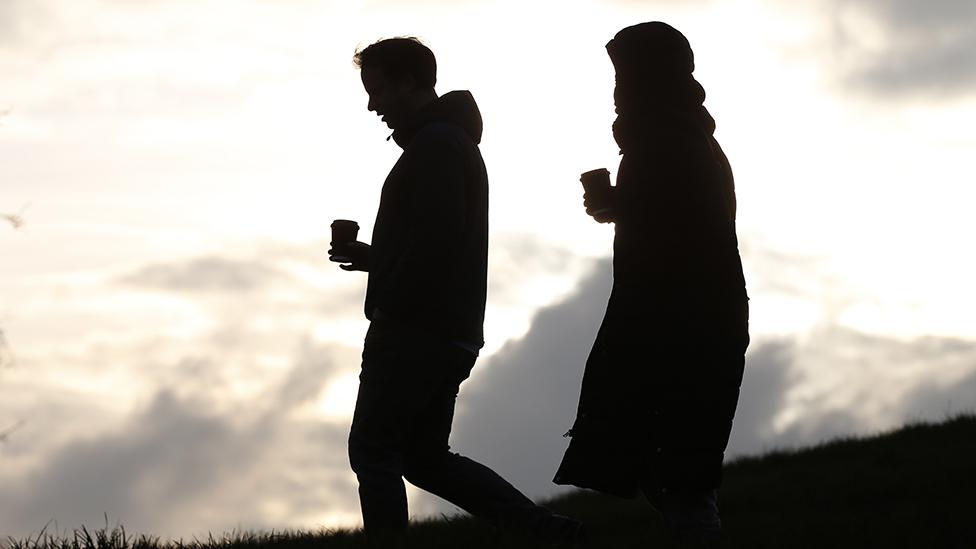Covid: Strength of defence against new wave unclear, says PM
- Published
Boris Johnson: "We're building up our own long-term UK manufacturing capabilities"
The UK does not know "exactly how strong" its defences against another wave of Covid will be despite the "impressive" vaccine rollout, Prime Minister Boris Johnson has said.
He said cases were still rising in Europe and people "must proceed with caution" as lockdown eases.
The PM was speaking as the stay-at-home rule came to an end in England, allowing groups to meet outdoors.
He warned more deaths, infections and hospitalisations were inevitable.
European countries have seen a rising number of cases in recent weeks amid a slower vaccine rollout than in the UK.
Mr Johnson told a Downing Street press conference the relaxation of restrictions would be "prized" by people and that it was "only because of months of sacrifice and effort that we can take this small step toward freedom".
He added: "The vaccine rollout has been very impressive... but what we don't know is exactly how strong our fortifications now are, how robust our defences are against another wave.
"What we need to do is to continue flat out to build the immunity of our population, build our defences against that wave when it comes."
The prime minister said: "That's why I stress the importance of everybody maintaining the discipline people have shown for so long."


The message was loud and clear - a rise in infections is inevitable as the UK unlocks.
But what is uncertain is when this will happen and what impact it will have on serious illness and deaths.
A surge now would be the worst outcome.
The vaccination rollout has gone very well, but people are still in the process of building up immunity and not everyone in the most at-risk groups has come forward for a jab.
The vaccines, while good, are not 100% effective. It is why ministers and their advisers are urging caution.
UK chief medical adviser Prof Chris Whitty says if people stick to the rules any increase could be modest.
The seasons may also help - respiratory viruses thrive more in the colder months.
The lower estimates of modelling done for the government suggests there could be 30,000 deaths by summer 2022.
That would be in line with a bad flu winter. But it could also be much, much worse.
If there is one thing we have learnt, nothing can be taken for granted with Covid.

Along with England's Chief Medical Officer Prof Chris Whitty and the Chief Scientific Adviser Sir Patrick Vallance, Mr Johnson stressed the importance of people who had a first dose of a vaccine getting a second jab.
Prof Whitty said the "wall of vaccination" will get stronger once people receive their second doses.
But he said "it is not a complete wall" and highlighted risks for the UK from rising cases elsewhere - the chance of importing infections and the "much bigger" concern of variants which could reduce a vaccine's effectiveness.
Prof Whitty said: "If you get a very big wave, that would obviously lead to a significant impact. So that's the reason why the prime minister and ministers have been absolutely determined that this is a slow and steady unlocking, looking at data between each step."
The briefing was held for the first time from the media suite built at Downing Street at a cost of £2.6m.
Mr Johnson announced the government had agreed a deal with UK pharmaceutical giant GlaxoSmithKline that will see the final stage of the manufacture of up to 60 million doses of its yet-to-be approved Novavax vaccine completed in north-east England.
He said Novavax, which is to be produced at the Fujifilm plant in Stockton-on-Tees, will be finished and bottled by GSK at its facility in Barnard Castle.

LOOK-UP TOOL: How many cases in your area?
LOCKDOWN RULES: What are they and when will they end?
SOCIAL DISTANCING: How can I meet my friend safely?
FACE MASKS: When do I need to wear one?

A further 4,654 Covid cases were recorded in the UK on Monday, compared with 5,342 cases a week ago. There were another 23 deaths of people within 28 days of a positive test, compared with 17 on the same day last week.
The latest figures show 293,542 UK adults received a first dose of the vaccine on Sunday, taking the overall number to 30,444,829 - with 146,785 having their second dose, bringing that total to 3,674,266.
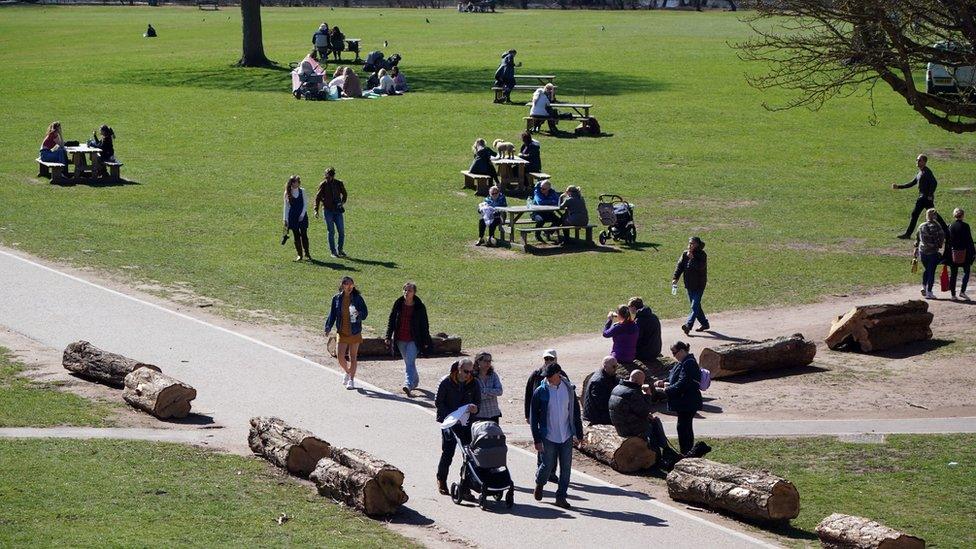
People were out enjoying the spring weather in the grounds of Wollaton Hall in Nottingham
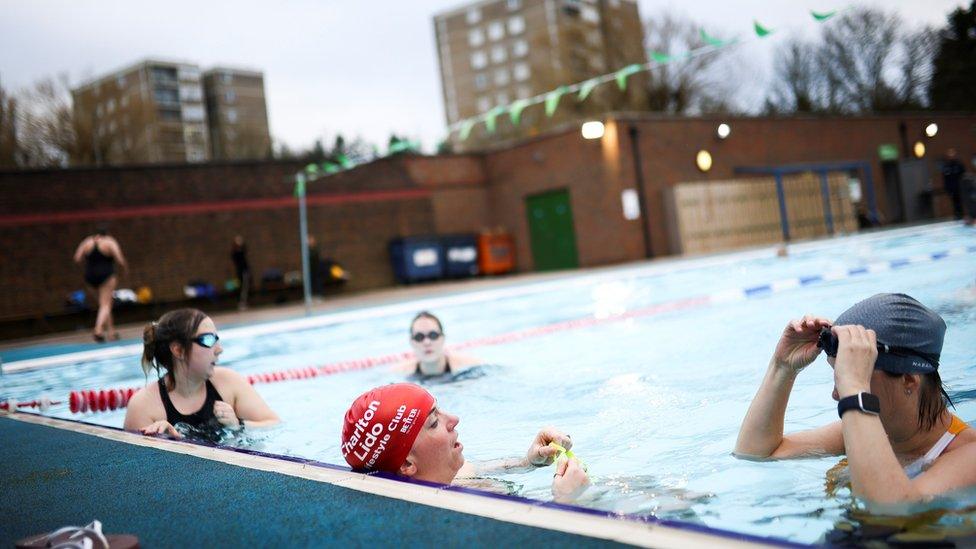
Outdoor sports facilities were able to open again on Monday
Two households or groups of up to six people are now able to meet outside in England after the latest easing of the lockdown rules.
Outdoor sport facilities, including swimming pools, tennis courts and golf courses, have reopened, and organised outdoor sports resumed.
Weddings are also on again, attended by up to six people.
The next stage in the relaxation of the rules in England will take place no earlier than 12 April with non-essential retail reopening, and restaurants and pubs allowed to serve outdoors.
The prime minister told the briefing he could not "see anything in the data right now that would cause us to deviate from the roadmap".
In Wales, the "stay local" rule was lifted on Saturday, with six people allowed to meet outside and stay in self-contained holiday accommodation. The stay home order in Scotland will end on Friday, and from Thursday in Northern Ireland up to six people, or two households, will be able to meet outdoors.

NOW THAT'S WHAT I CALL LOCKDOWN: The music that got you through
WALKING HOME ALONE: "I'm just too terrified"

- Published29 March 2021
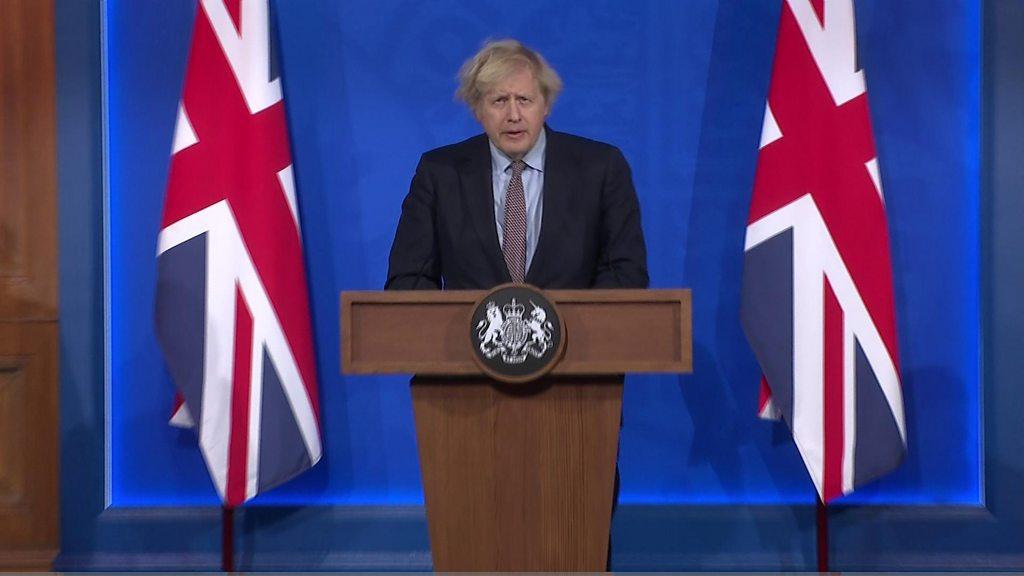
- Published4 March 2022
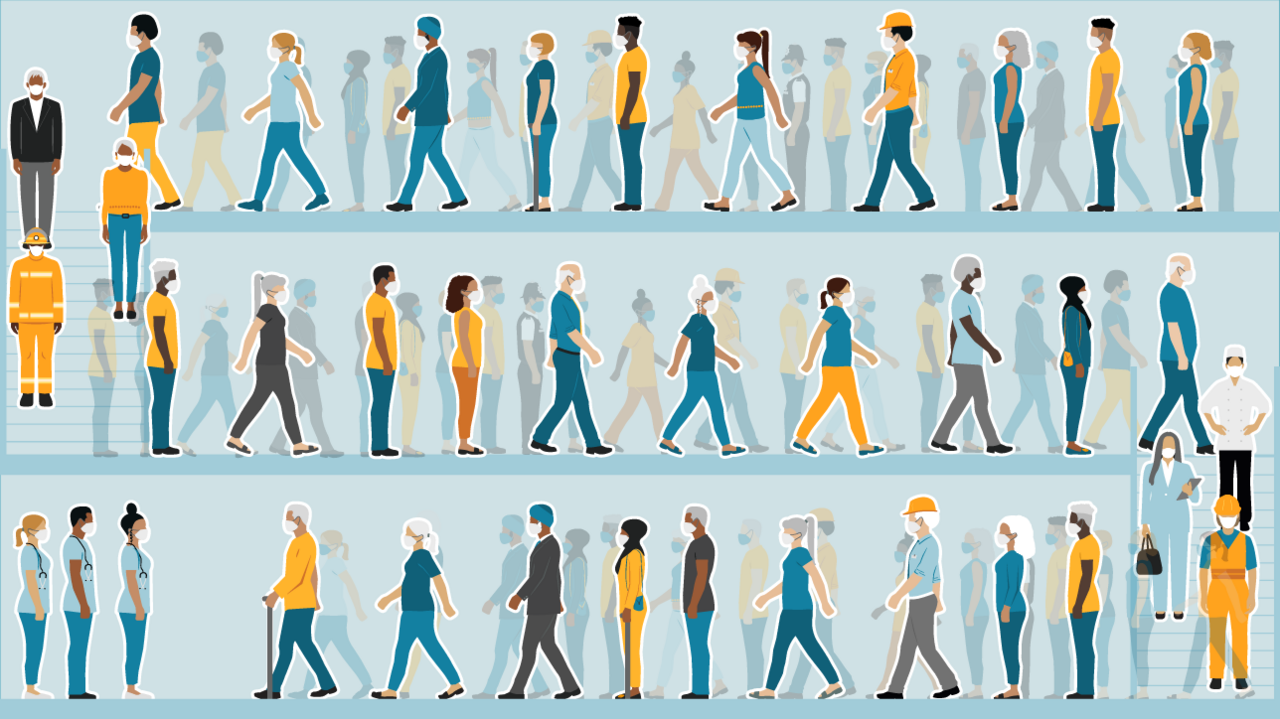
- Published22 April 2021
